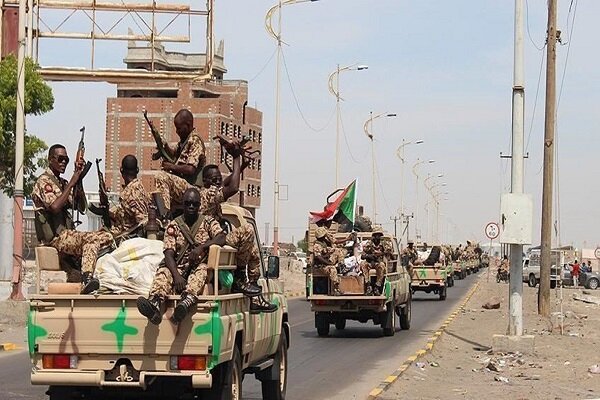Continued exchange of fire between the army and the rapid support forces of Sudan

report Mehr News Agency, according to Al Jazeera, the clashes between the Sudanese army under the command of General “Abd al-Fattah al-Barhan” and the rapid support forces of this country under the command of General “Hamidati” continue.
According to the reports, intense clashes are going on in Khartoum, the capital of Sudan, the city of Al-Fasher, the capital of North Darfur province, and the city of Al-Fule, the capital of West Kordofan province. It has led to the death and wounding of a number of Sudanese.
The Al Jazeera reporter reported that the fighters of the Sudanese army have carried out numerous and consecutive attacks against some positions of the rapid support forces in the east and north of Al-Fasher city.
dir=”RTL” style=”text-align:justify”>
According to the Al Jazeera report, a column of smoke rose from the targeted positions and loud explosions were heard from around Al-Fasher.
In addition to this, the news media announced that the rapid support forces targeted al-Fasher city yesterday evening. These media called the attacks of the rapid support forces on al-Fasher last evening as the most severe attacks since the beginning of the conflicts.
Also, the Sudanese army targeted the positions of the rapid support forces in the center of Khartoum city and Khartoum Bahri area.
It should be said that since April 15th of last year, Sudan witnessed a conflict between the army forces of this country under the command of General “Abd al-Fattah Al-Barhan” and the Rapid Support Forces of Sudan under the command of General “Mohammed It was Hamdan Deghlo” (Hamidati).
The number of casualties in the conflict between the army and the Sudan Rapid Support Forces is not exactly known, but some estimates suggest that 150,000 people died in these conflicts.
Also, according to the statistics announced by the United Nations, since the beginning of these conflicts, nearly 10 million people have been displaced in Sudan, and the country’s infrastructure, which is at risk of famine, It is also largely destroyed.


